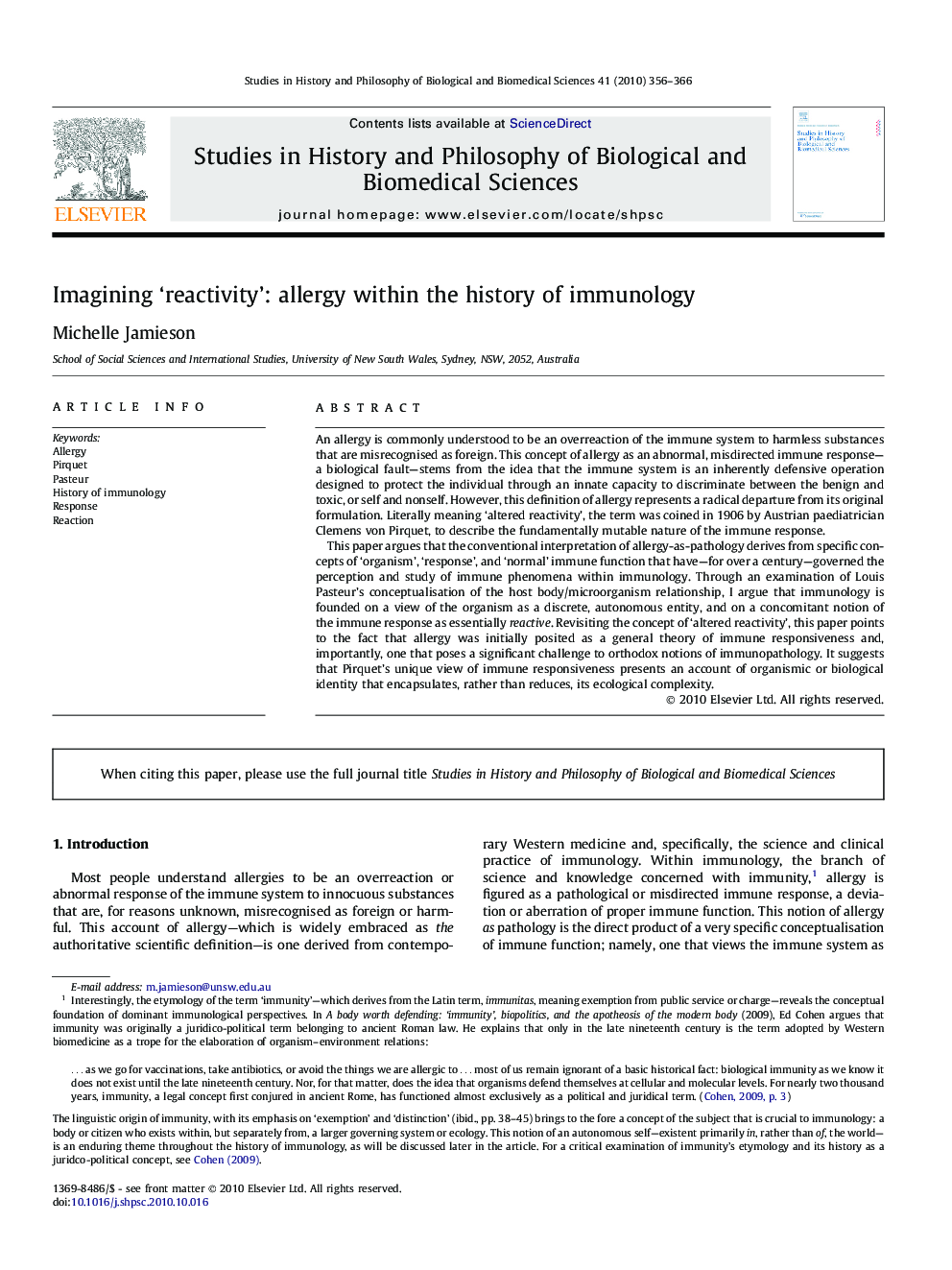| Article ID | Journal | Published Year | Pages | File Type |
|---|---|---|---|---|
| 7553295 | Studies in History and Philosophy of Science Part C: Studies in History and Philosophy of Biological and Biomedical Sciences | 2010 | 11 Pages |
Abstract
This paper argues that the conventional interpretation of allergy-as-pathology derives from specific concepts of 'organism', 'response', and 'normal' immune function that have-for over a century-governed the perception and study of immune phenomena within immunology. Through an examination of Louis Pasteur's conceptualisation of the host body/microorganism relationship, I argue that immunology is founded on a view of the organism as a discrete, autonomous entity, and on a concomitant notion of the immune response as essentially reactive. Revisiting the concept of 'altered reactivity', this paper points to the fact that allergy was initially posited as a general theory of immune responsiveness and, importantly, one that poses a significant challenge to orthodox notions of immunopathology. It suggests that Pirquet's unique view of immune responsiveness presents an account of organismic or biological identity that encapsulates, rather than reduces, its ecological complexity.
Related Topics
Life Sciences
Agricultural and Biological Sciences
Agricultural and Biological Sciences (General)
Authors
Michelle Jamieson,
